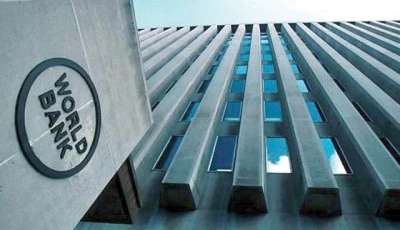


FREETOWN, Sierra Leone – The war crimes trial of Gibril Massaquoi, the Sierra Leonean former Revolutionary United Front commander, will begin hearings in Sierra Leone on Friday. The trial, being held by a court from Finland where Massaquoi was resettled in return for aiding prosecutors in the Special Court for Sierra Leone, has attracted little attention in Sierra Leone.
By Mae Azango, New Narratives Senior Justice Correspondent
Local news outlets have published reporting by Finnish and Liberian journalists when the trial held hearings in those two countries but there has been little interest shown by Sierra Leoneans.
“I published all of the New Narratives stories of Gibril Massaquoi’s trial when the Finnish court visited Liberia, and not a single comment I got regarding any of the stories. Nobody in Sierra Leone is talking about Massaquoi’s trial, not even the judiciary,” said Stephen Douglas Editor of Sierra Leonean’s Media Watch newspaper.
Douglas said he thinks people are afraid to talk about the trial for a number of reasons. “I think people are afraid of reprisal from the government, because some people, who were part of the revolution along with Massaquoi, are part of the present government of Sierra Leone. Other could be scared because they feel Massaquoi’s allies are still around, while others are afraid of opening old wounds.”
Mr. Douglas said that even though the location of the court in Sierra Leone is hidden, witnesses testifying before the Finnish court, are terrified, as just as witnesses in Liberia were.
As this journalist walked around to see and hear peoples’ views on Massaquoi’s trial, people in Freetown, were moving about their normal businesses and did not appear to know or care if a trial is going on.
One local Sierra Leonean youth who did not want to be named, was selling phone credits and doing foreign exchange looked surprised when asked about the trial. “When and where is that happening? I do not know anything about a trial taking place here in Sierra Leone. If it is happening, then the entire trial is in hidden. No radio station has announced it, so nobody knows about it,” he said.
The Finnish Court left Liberia two weeks after hearing seven weeks of testimony from dozens of witnesses. Witnesses alleged that Massaquoi, under the alias “Angel Gabriel” carried out massacres, rape and torture of civilians in Lofa County, North of Liberia and in Monrovia from 2001 – 2003.
The issue of dates has plagued the prosecution case in the trial. Many of the witnesses said the crimes took place in Waterside in Monrovia in 2001 but there was no fighting in the capital at that time. Others have said the events happened in 2003, at a time when Massaquoi was supposedly under house detention as a witness in Freetown. On cross examination by defense lawyers the witnesses have blamed faulty memory for the discrepancies in dates.
The confusion of dates has baffled Aaron Weah, a leading expert on transitional justice in Liberia. He is the only Liberian scholar to have attended the hearings in Liberia.
“I used to live in the center of Monrovia, in an apartment building on Water Street, located between the Old Bridge and New Bridge that has come up in the Massaquoi proceedings as a major landmark. It is very fresh in my mind,” said Weah, in an interview with justiceinfo website. “2003 is the more recent period that we saw real violence, when the entire country shut down. You would think that people who suffered directly from this violence would tend to recall it more vividly. Surprisingly they remember these timelines differently. Some witnesses refer to 2001 or 2002 as 2003. What is driving this sort of amnesia and confusion is not very clear. Why are Liberians confusing these recent dates?”
Massaquoi’s defense lawyers have suggested there was another Gibril Massaquoi committing atrocities in the two areas at the time. These are the key questions that will be examined by the court in Freetown over the next two to three weeks.
Massaquoi, is being prosecuted in Finland for war crimes and crimes against humanity in Liberia. Massaquoi was a Lieutenant-Colonel of the RUF and an assistant to the rebel group’s founder, Foday Sankoh, during the Sierra Leonean Civil War. In 2005, Massaquoi was granted immunity from prosecution for crimes in Sierra Leone in return for his testimony in the war crimes trials in Sierra Leone. Experts said he was instrumental in the convictions of several rebel leaders including former Liberian president Charles Taylor with whom he was close during the civil conflicts in both countries.
Finland granted Massaquoi residency for his role in the Sierra Leone Special Court. But when Civitas Maxima, of Switzerland and Liberia-based Global Justice Research Project presented Finnish investigators with evidence of Massaquoi’s war crimes in Liberia, they arrested him in March 2020 for his role in that war.
Massaquoi’s trial began on February 1 in the city of Tampere, where he had been living. Rather than transport more than 80 witnesses set to testify to Finland in the midst of a pandemic, the court moved to Liberia.
Hearings in Freetown will begin on Friday.
This story was a collaboration with New Narratives as part of the West Africa Justice Reporting Project. Funding was provided by the Office of the United Nations High Commissioner for Human Rights. The funder had no say in the story’s content.




The ball is in Imran Khan's Court
comments
Comments are moderated and generally will be posted if they are on-topic and not abusive.
For more information, please see our Comments FAQ